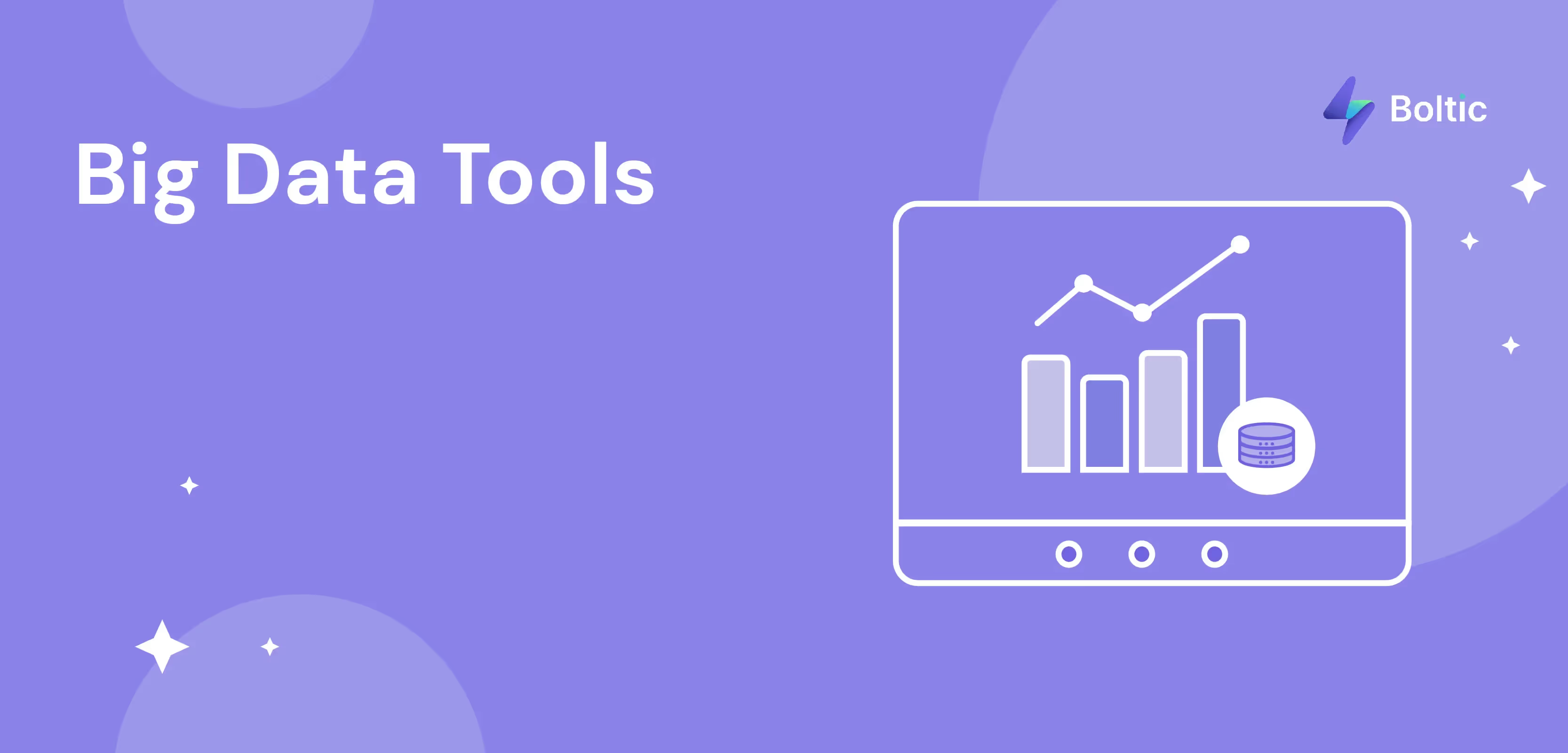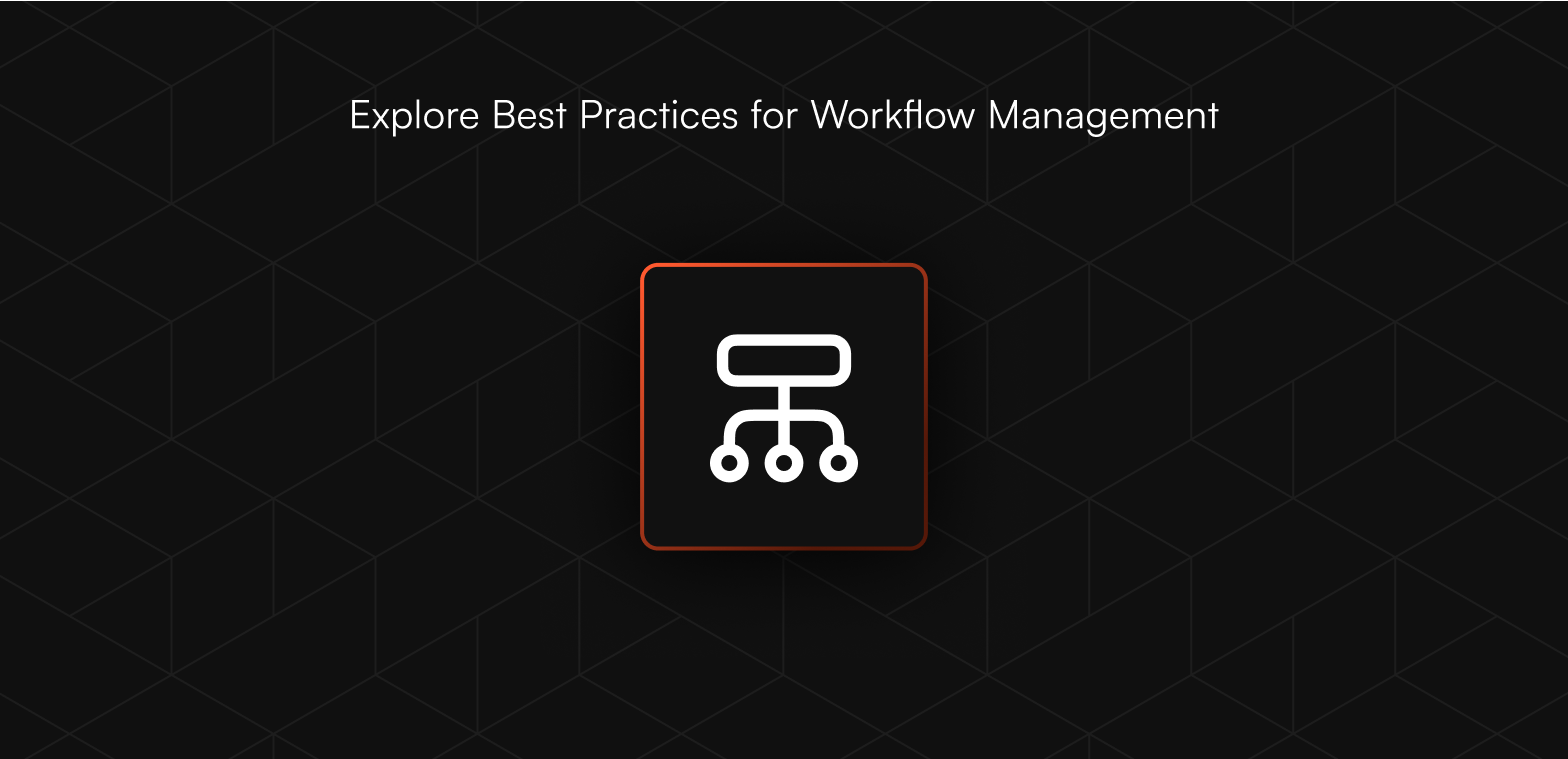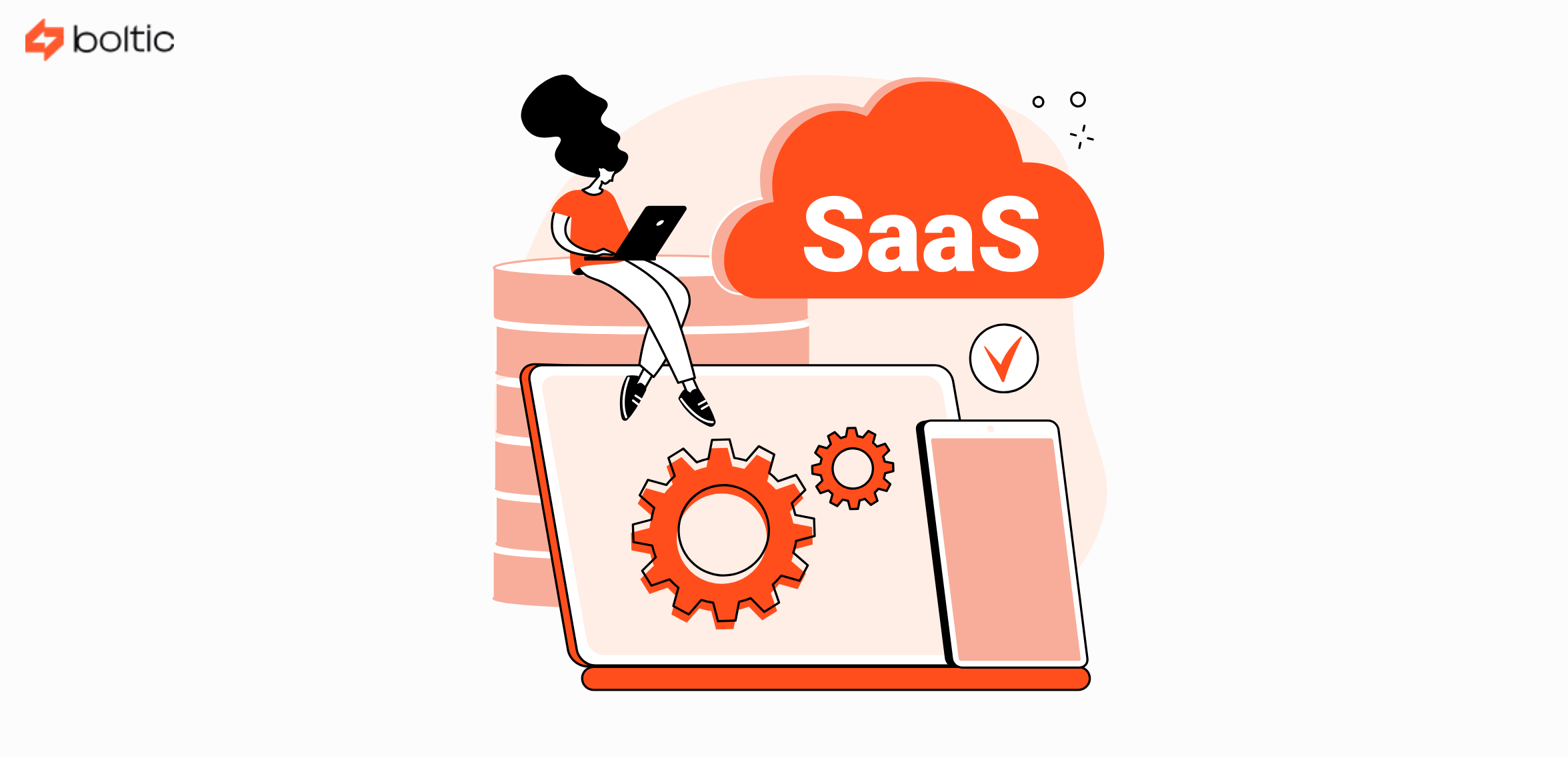Big Data tools have taken over the business analytics sector by providing data-driven insights that help companies in their decision-making processes. The demand for big data is only increasing as we generate more data than ever before.
It has now become an integral part of almost every industry vertical, from retail to healthcare, and its importance is only going to grow in the coming years. The productivity and efficiency gains that big data analytics provides have made it a key driver of business growth.
However, with so many different big data tools and technologies available, it can be difficult to know which ones are right for your needs. To help you out, we’ve put together a list of the best big data tools and software that you should consider using in 2026.
But before we start with our list let us first understand what big data tools are and why they are important.
What are Big Data tools?
Big data tools are software that helps organisations collect, process, and analyse large volumes of data. They enable businesses to make better decisions by providing insights that would otherwise be unavailable.
A big data tool works by first collecting data from various sources, then processing and storing it in a central repository. Once the data is stored, it can be analysed to extract valuable insights. You can even use big data tools to predict future trends.
In order to use a big data tool, you need to have a good understanding of big data concepts and technologies. This will help you choose the right tool for your needs and ensure that you are able to get the most out of it.
Why are Big Data tools important?
The vast majority of businesses now rely on data to make decisions. This is because data provides an objective view of what’s happening, which can be used to improve efficiency and effectiveness.
Big data analytics takes this a step further by providing insights that would otherwise be unavailable. This is because big data tools are able to process and analyze large volumes of data much faster than a human could.
Another reason why big data tools are so important is that they can be used to predict future trends. This is done by analyzing past data to identify patterns and trends. This information can then be used to make decisions that will improve the chances of success in the future.
Furthermore, big data tools are important because they can help you save time and money. This is because they automate many tasks that would otherwise need to be done manually. This includes tasks such as data collection, data processing, and data analysis.
Big data analytics can help you in a number of ways, such as:
- Improving decision making
- Identifying new business opportunities
- Optimizing marketing campaigns
- Reducing costs
- Predicting future trends
The bottom line is that big data analytics is a powerful tool that can be used to improve almost any aspect of your business. If you’re not using big data tools, you’re at a disadvantage compared to your competitors.
Factors to consider while selecting the Big Data tools
The most effective big data tool for your business will depend on a number of factors, such as:
The size of your data:
You need to consider how much data you have and how fast it’s growing. If you have a lot of data, you’ll need a big data tool that can handle large volumes of data. On the other hand, if you have a small amount of data, you might not need a big data tool.
The purpose of the data:
You need to consider what you want to use the data for. This is because different big data tools are better suited for different purposes. For example, some big data tools are better at providing insights, while others are better at predicting future trends.
High security:
Big data tools usually deal with sensitive information. This means that security is a big concern. You need to make sure that the tool you choose has high-security features. Otherwise, you might end up jeopardising the security of your data.
Your budget:
Paying attention to your budget is also important. Big data tools can cost a ton of money, so you need to make sure you’re not overspending. On the other hand, you also don’t want to skimp on quality and end up with a tool that doesn’t meet your needs.
Your level of expertise:
You need to consider your level of expertise when choosing a big data tool. If you’re not an expert, you’ll need a tool that’s easy to use. This way, you won’t waste a lot of time trying to figure out how to use the tool.
Agile and Scalable:
As your business grows, your Big Data needs will also grow. It is important to have a tool that is agile and scalable. This way, you can easily scale up or down as needed. You might think that this is not something to worry about now, but it is always better to be prepared for the future.
The type of data:
You also need to consider the type of data you have. This is because different big data tools are better suited for different types of data. For example, some big data tools are better at handling structured data, while others are better at handling unstructured data.
Seamless integrations:
You need to consider how well the Big Data tool you choose will integrate with your existing systems. This is important because you don’t want to end up with a tool that is difficult to use or doesn’t work well with your other systems.
Advanced Analytics:
The Big Data Analytic Tool that you choose should also be able to provide advanced analytics. Advanced analytics is the process of analyzing data to find hidden patterns, correlations, and insights.
This information can then be used to make better decisions. It is very important to have a tool that can provide advanced analytics as it can give you a competitive advantage.
Support:
Last but not least, you need to make sure that the Big Data tool you choose has good support. This way, you can get help when you need it and you won’t have to worry about being left in the dark.
These are just some of the factors you need to consider while choosing a Big Data tool. If you keep these factors in mind, you’ll be able to choose the best Big Data tool for your business.
Best Big Data tools in the market
Now that you know the factors to consider while choosing a Big Data tool, let’s take a look at some of the best Big Data tools in the market.
1) Boltic:
Boltic is a No-code modern big data ops workspace for all businesses. It offers users the ability to monitor, secure, and govern all data operations in one place. Our platform makes use of an intuitive drag-and-drop interface that makes it easy to create and manage data pipelines.
Additionally, Boltic allows users to track SLAs, so you can always be sure that your data is being processed in a timely manner. Try Boltic today and see how we can help you streamline your data operations.
2) Hadoop:
The Apache Hadoop software library is a big data framework that offers many benefits. It allows distributed processing of large data sets across clusters of computers, which makes it ideal for handling big data.
Additionally, it comes with authentication improvements when using an HTTP proxy server and support for POSIX-style filesystem extended attributes. This makes it a very flexible tool that can be used to meet the analytical needs of developers.
Finally, it is faster than other data processing frameworks, making it a good choice for those who need to process large amounts of data quickly.
3) Atlas.ti
Atlas.ti is a powerful research software that offers an all-in-one access to the entire range of platforms. With this big data analytic tool, you can easily export information on each source of data, as well as rename codes in the margin area.
Additionally, it provides an integrated way of working with your data, making it easy to handle projects that contain thousands of documents and coded data segments. Consequently, Atlas.ti is an ideal tool for qualitative data analysis and mixed methods research in academic, market, and user experience research.
4) HPCC:
A big data tool that delivers on a single platform, architecture, and programming language is HPCC. This tool is highly efficient in completing big data tasks with less code. In addition, it offers high redundancy and availability.
It can be used for complex data processing on a Thor cluster as well as for graphical IDE development, testing, and debugging. You can extend its use by writing C++ libraries. Finally, the ECL code compiles into optimised C++ for scalability and performance.
5) Storm:
Your best call for processing big data is Storm. It's free, open-source, and does real-time computation very well. If you're looking for a tool that will utilize parallel calculations across multiple machines, this is the one you want.
Plus, if any node in your cluster happens to go down, don't worry - Storm will automatically restart it on another node. And finally, you can rest assured that each piece of data will be processed at least once. So if you're looking for an easy-to-use big data tool, look no further than Storm.
6) Cassandra:
Cassandra is one of the most popular big data tools available today. It is known for its ability to replicate across multiple data centers, providing lower latency for users. Additionally, data is automatically replicated to multiple nodes for fault tolerance.
This makes Cassandra an ideal choice for applications that cannot afford to lose data, even when an entire data center is down. You can even find support contracts and services from third parties if needed.
7) Stats iQ:
An easy-to-use statistical tool that will help big data analysts like yourself to explore any data in seconds while also offering features such as histograms, scatterplots, heatmaps, and bar charts that can be exported to Excel or PowerPoint.
Statwing also translates results into plain English, so analysts unfamiliar with statistical analysis will still be able to understand the findings. You will not be disappointed with Stats iQ by Qualtrics.
8) CouchDB:
CouchDB is a single-node database that offers the same functionality as any other database. It is one of the big data processing tools that allows running a single logical database server on any number of servers.
CouchDB makes use of the ubiquitous HTTP protocol and JSON data format, which makes it easy to replicate a database across multiple server instances. The JSON-based document format also makes it easy to translate documents across different languages. You can use CouchDB to easily insert, update, retrieve, and delete documents.
9) Pentaho:
With Pentaho, businesses can effectively turn big data into insights. The software provides users with the ability to access and integrate data for accurate data visualization.
It also offers seamless switching or combining of data processing with in-cluster execution to get maximum processing power. Lastly, Pentaho supports a wide variety of big data sources, making it a versatile tool for businesses. You will not regret using Pentaho for your data needs.
10) Flink:
Flink is a distributed streaming platform that supports stateful stream processing and windowing. It is designed to handle out-of-order or late-arriving data and can recover from failures.
Flink runs on thousands of nodes, providing good throughput and latency characteristics. It supports a wide range of connectors to third-party systems for data sources and sinks. All your streaming data analytics needs can be met with Apache Flink.
11) Openrefine:
You can use Open Refine to easily explore large data sets and link and extend your dataset with various web services. It can import data in various formats and allows you to apply basic and advanced cell transformations.
Open Refine also helps you deal with cells that contain multiple values, create instantaneous links between datasets, and use named-entity extraction on text fields to automatically identify topics. You can perform advanced data operations with the help of Refine Expression Language.
12) Rapidminer:
With RapidMiner, you can easily perform data preparation, machine learning, and model deployment tasks. It offers a suite of products that allow you to build new data mining processes and set up predictive analysis. RapidMiner integrates with in-house databases, making it easy to manage your data.
Additionally, its interactive dashboards are shareable, so you can collaborate with others on your data analysis. Finally, RapidMiner offers big data predictive analytics and can store streaming data in numerous databases. This makes it a powerful tool for data analysis.
Key benefits and use cases of Big Data tools
By now, you should have a good idea of the different big data tools available. But what are the key benefits and use cases of these tools? Let’s take a look.
Faster and better decision-making within organisations
Big Data Tools are used to make decisions based on data analysis. The data can be from within the organisation or from outside sources. With the help of these tools, businesses can come to decisions faster and with more accuracy.
Improved customer experience
Another key benefit of using Big Data Tools is that they can help organisations improve customer experience. By analysing customer data, businesses can understand customer needs and preferences better. This, in turn, can help businesses provide better customer service and improve the overall customer experience.
Increased efficiency and productivity
Big Data Tools can also help organisations increase their efficiency and productivity. By automating tasks and processes, businesses can free up employees to focus on more important tasks. Additionally, by analysing data, businesses can identify areas where they can improve their processes and make them more efficient.
Product development and innovations
Big Data Tools can also be used for product development and innovations. By analysing customer data, businesses can understand what customers want and need. This information can then be used to develop new products or improve existing ones.
Conclusion
Big Data Tools are an essential part of any business that wants to make use of the large amounts of data being generated every day. You will need a tool to process and analyse this data so that you can make better business decisions.
Boltic can help you with all your big data needs. Our easy-to-use, no-code platform makes it easy to get started with big data. So why wait? Contact us today and let us help you take your business to the next level.
drives valuable insights
Organize your big data operations with a free forever plan
An agentic platform revolutionizing workflow management and automation through AI-driven solutions. It enables seamless tool integration, real-time decision-making, and enhanced productivity
Here’s what we do in the meeting:
- Experience Boltic's features firsthand.
- Learn how to automate your data workflows.
- Get answers to your specific questions.

.avif)








